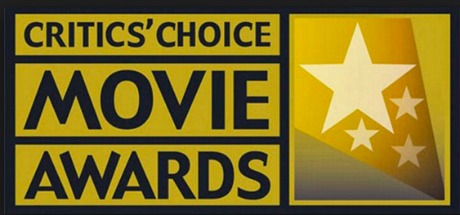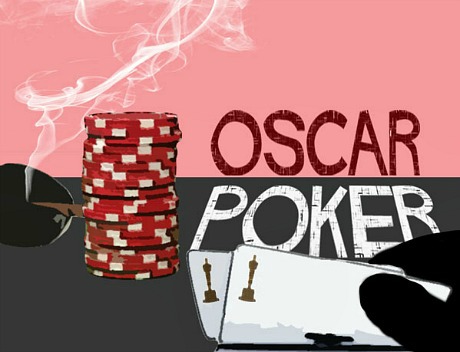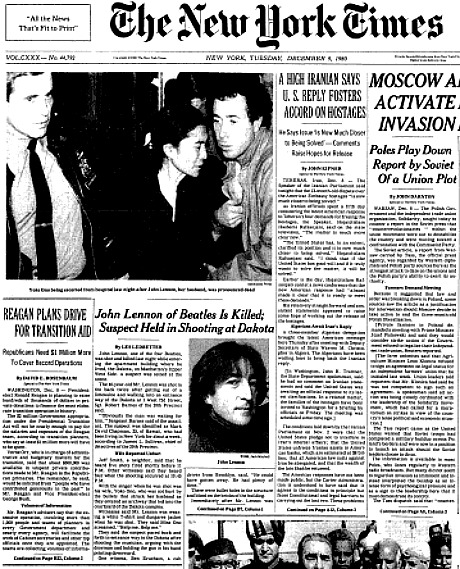Check-in for invited guests at tonight’s Star Wars: The Force Awakens premiere will “begin at 5:00pm at the northeast corner of Orange Dr. and Hollywood Blvd,” says a Disney-generated email. The general presumption is that three theatres — the Dolby, the Chinese and the El Capitan — will screen the film more or less simultaneously at 6:30 pm. Prediction: No way showings start before 7 or even 7:30 pm. The Dolby has 3401 seats, the Chinese has 1152 and the El Capitan has 1100 = 5653 seats. If the event has been invited to capacity 5653 people are going to have to get past a team of Disney staffers checking IDs and names on iPads as well as checking bags within a 90-minute period (i.e., 5 pm to 6:30 pm). That means at least 61 guests per minute or one person per second will have to be processed. If you’ve ever been to will-call at a movie premiere you know that’ll never happen. On top of which (this is stunning when you think about it), the invite states that “no cameras, video recorders or cell phones with camera/video capability will be allowed in the theatre.” In other words no phones at all — 5600 people sitting in their seats without the ability to check messages or text or tweet or anything. How many hundreds are going to be unaware of this rule and attempt a losing battle at getting in regardless? What percentage will try to sneak their phones in? This is going to be a complete and total zoo.
Daily
Russell Could Stand Up To Trump
Hollywood Elsewhere traffic spiked so strongly a week after the Kurt Russell thing that yesterday Liquid Web sent me a note of concern and suggested I might want to expand my bandwidth capacity. Thundering hordes of rightwing loons have glommed onto this (88,000 have watched this video), all of the commenters saying I’m a deluded liberal fool and so on. Russell was allegedly “upset” after our discussion (or so I was told by Weinstein publicists) but look at him now — he’s suddenly the new super-stud of the rightwing blogosphere, Snake Plissken reborn. He could run for the Republican nomination right now and probably fare pretty well against Donald Trump — seriously. And I’d still love to see him play his late father, Bing Russell, in a feature film version of The Battered Bastards of Baseball.
Half-Decent Garbage
I just stumbled upon this Spirit track an hour ago. Hasn’t been in my head for eons but I’ve always felt an affection for this cut, particularly the downshifting at the one-minute mark into a generic-sounding jazz piano riff by keyboardist John Locke. Spirit’s most popular song was “I Got A Line On You.” Singer-guitarist Randy California drowned off the coast of Molokai in 1997, at age 45. California is arguably best known for a gentle guitar intro to “Taurus“, a Spirit song, that was ripped off note-for-note by Jimmy Page in the creation of “Stairway to Heaven.”
Citizen’s Plea to UCLA Marketers: Stop Pushing “Change The Game” Videos
Think positively, be giving and unselfish, have faith in enlightened brains, don’t be a cynical nihilist, think constructively, don’t get bogged down in cultural resentment, etc. These are tenets of the UCLA Optimists marketing campaign, which I completely…well, mostly admire and believe in. (I derive too much pleasure from hating on under-educated Tea Party rurals to give that one up.) Why, then, do I absolutely hate this YouTube “changing the game” video that’s been playing before almost every trailer I’ve watched for the last two or three months? Mainly because it’s been playing before almost every trailer I’ve watched for the last two or three months, but also because I hate listening to serene sanctimonious bromides and especially the pat, peppy tone in the narrator’s voice. Chalk on a blackboard. Close to the breaking point.
Fury Road Snags 13 Critics Choice Noms, and Dano Lands Another One
Nominees for the 21st Annual Critics’ Choice Awards, selected by the Broadcast Film Critics Association (BFCA) and Broadcast Television Journalists Association (BTJA), were announced yesterday with the understanding that they wouldn’t be posted until today at 7 am. 13 nominations for Mad Max: Fury Road, nine nominations each for The Revenant, Carol and The Martian, eight for Spotlight, seven for The Big Short, six for The Hateful Eight, etc. The org blew off Beasts of No Nation — not cool. But otherwise they pretty much stuck to the same preferences that critics elsewhere have agreed upon.

BEST PICTURE: The Big Short, Bridge of Spies, Brooklyn, Carol, Mad Max: Fury Road, The Martian, The Revenant, Room, Sicario, Spotlight. HE comment: They’re spreading the peanut butter around. Spotlight takes it.
BEST DIRECTOR: Todd Haynes, Carol; Alejandro González Inarritu, The Revenant; Tom McCarthy, Spotlight; George Miller, Mad Max: Fury Road; Ridley Scott, The Martian; Steven Spielberg, Bridge of Spies. HE comment: Spielberg?
BEST ACTOR: Bryan Cranston, Trumbo; Matt Damon, The Martian; Johnny Depp, Black Mass; Leonardo DiCaprio, The Revenant; Michael Fassbender, Steve Jobs; Eddie Redmayne, The Danish Girl. HE comment: Redmayne? Leo wins.
BEST ACTRESS: Cate Blanchett, Carol; Brie Larson, Room; Jennifer Lawrence, Joy; Charlotte Rampling, 45 Years; Saoirse Ronan, Brooklyn; Charlize Theron, Mad Max: Fury Road. HE comment: I’m thinking it might be Ronan.
BEST SUPPORTING ACTOR: Paul Dano, Love & Mercy; Tom Hardy, The Revenant; Mark Ruffalo, Spotlight; Mark Rylance, Bridge of Spies; Michael Shannon, 99 Homes; Sylvester Stallone, Creed. HE comment: Dano, for God’s sake.
BEST SUPPORTING ACTRESS: Jennifer Jason Leigh, The Hateful Eight; Rooney Mara, Carol; Rachel McAdams, Spotlight; Helen Mirren, Trumbo; Alicia Vikander, The Danish Girl; Kate Winslet, Steve Jobs. HE comment: Jane Fonda’s Youth performance is a far more deserving contender than Helen Mirren’s Trumbo turn as Hedda Hopper and WAY more compelling than Jennifer Jason Leigh’s in The Hateful Eight, no offense.
Two-Against-One Poker
I’m sorry but today’s Oscar Poker session felt a little curious to me. A portion of it, I mean. It seemed to me as if Awards Daily‘s Sasha Stone and Awards Watch‘s Erik Anderson were teaming up and not giving my views their appropriate due. I’ve been at this racket for longer than either of them, and they made me feel like they were the knowledgable middle-class parents who like to pour milk over everything and say “on the other hand” a lot, and I was the 16 year-old malcontent whose views they “listen” to out of tolerance or something. It pissed me off and I said as much. But then we got past that. Again, the mp3.

Dano Steam Engine
As of today Love & Mercy‘s Paul Dano has been named Best Actor by the San Francisco Film Critics, the Gotham Film Awards, the Boston Society of Film Critics and the New York Online Film Critics, and has been nominated for Best Actor by the Indiana Film Journalists. He’s also been nominated for Best Supporting Actor by the Spirit Awards, the Hollywood Foreign Press Association, the Detroit Film Critics Society, the Satellite Awards, the San Diego Film Critics Society, the St. Louis Film Critics Association, the Washington D.C. Area Film Critics Association and a major critics group I can’t name until tomorrow (i.e., Monday).
With Exception Of A Relative Handful, Much Of 2016 Looks Like Megaplex Wankathon
Every December-January I scan the brightest prospects for the coming year…and then fall into a vague depression when I realize how many cheesy-sounding popcorn films are in the pipeline. I know this impression won’t last and that things will gradually brighten, but right now ’16 looks “entertaining” as far as it goes but not with an abundance of meaty, high-falutin’, critical-heart-flutter flicks outside of Joel and Ethan Coen‘s Hail Caesar! and Martin Scorsese‘s Silence and…well, those two anyway. I need to see more films made for guys like me because right now things seem a little light on that end.
Please consult Wikipedia’s 2016 film roster + my recent Sundance ’16 preference list and tell me if you’re feeling any excitement outside the aforementioned pair plus the following: Warren Beatty‘s still-untitled Howard Hughes film, Oliver Stone‘s Snowden, Jeff Nichols‘ Midnight Special, Robert Eggers‘ The Witch, Terrence Malick‘s Knight of Cups, Zack Snyder‘s Batman v. Superman: Dawn of Justice, Paul Greengrass‘s untitled fifth Bourne film w/ Matt Damon, Ariel Vroman‘s Criminal, Richard Linklater‘s Everybody Wants Some, Antoine Fuqua‘s The Magnificent Seven, Peter Berg‘s Deepwater Horizon, Ed Zwick‘s Jack Reacher: Never Go Back, Justin Kurzel‘s Assassin’s Creed and Morten Tyldum‘s Passengers.
35 Years? Yup, Afraid So.
“My most profound Police moment happened on the evening of December 8, 1980, in a small pub in the Stockwell section of London. Never a hardcore audiophile and even less so due to being poor, I was a little late in getting into their music. I had just bought a cassette tape of Zenyatta Mondatta maybe a month or so earlier but I hadn’t listened to it that much. I was edging my way in. Anyway there I was in London to do an interview with Peter O’Toole (hot at the moment off his career-reviving performance in The Stunt Man) for GQ. I was crashing with a couple of ladies I knew through a journalist friend, and I was sitting at a table and drinking a pint and feeling great about being in England for the first time alone, and then somebody got up and played ‘Don’t Stand So Close To Me’ on the jukebox. And all of a sudden I heard that song for the first time. The juke was putting out super-thrompy bass tones and it just sounded perfect, and from that moment on I was a Police fan. The next morning I awoke around 7 am to news on the radio that John Lennon had been shot and killed only a few hours earlier in New York City.” — posted on 2.27.15.


